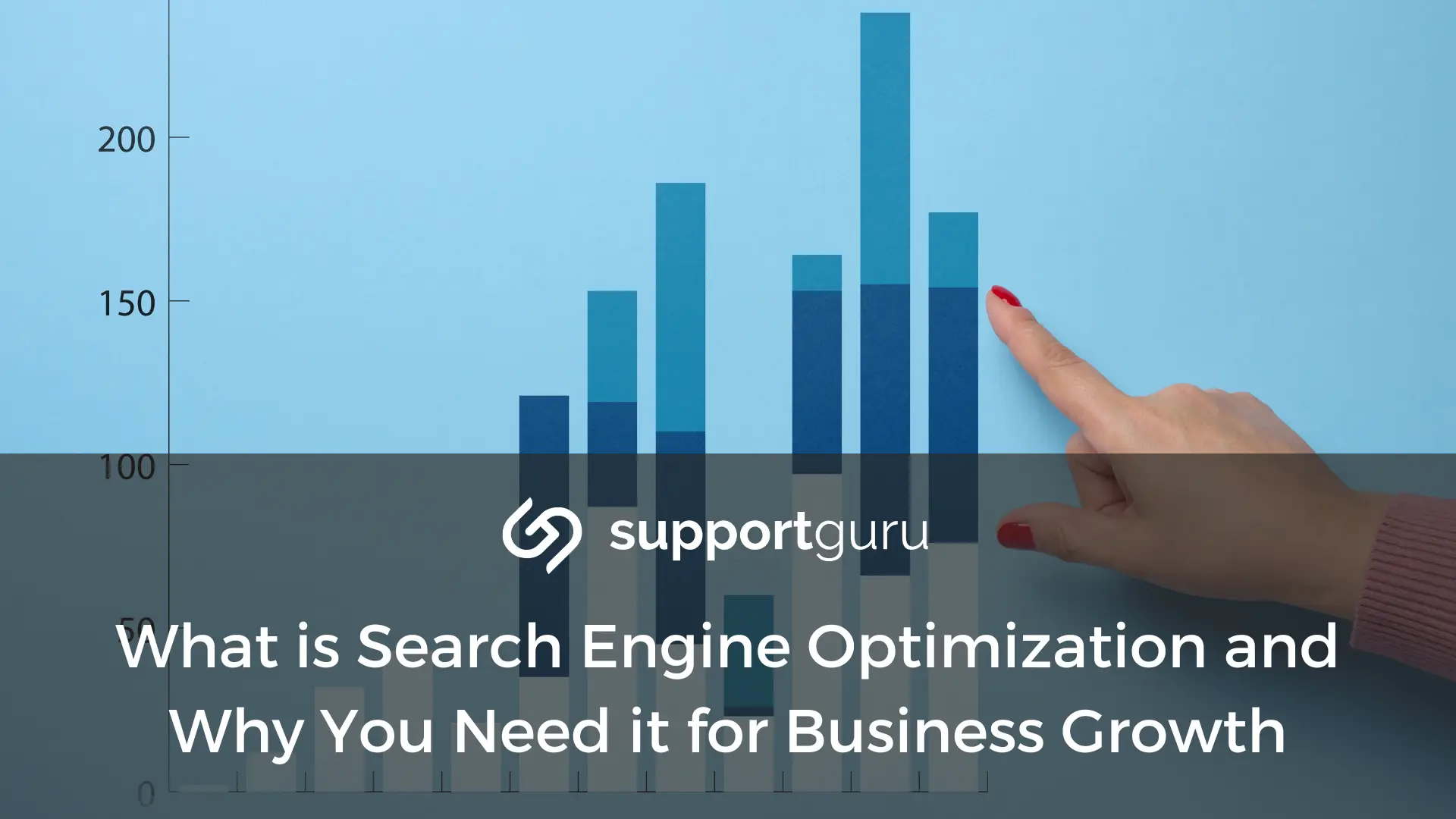Search engine optimization (SEO) is the strategic practice of improving your website's visibility and ranking in search engine results pages (SERPs) for relevant keywords.
75% of internet users never scroll past the first page of search results.
How Does Search Engine Optimization Work?
Search engines, like Google and Bing, employ complex algorithms to crawl, index, and rank websites based on various factors.
SEO aims to optimize your website in a way that aligns with these ranking criteria, making it more discoverable by your target audience searching for products, services, or information related to your business.
Crawling: Search engine bots systematically scan and analyze the content and structure of your website. This allows them to understand what your website is about and how it's organized.
Indexing: Once crawled, the information is added to the search engine's massive database, known as the index. When users enter a search query, the search engine retrieves relevant pages from its index.
Ranking: This is where the SEO optimization efforts come into play. Search engines use sophisticated algorithms to rank websites within the search results based on a multitude of factors, including:
-
Website Content: The search engine analyzes the content on your website, including text, images, and videos, to determine its relevance to user search queries. High-quality, informative content that addresses your target audience's needs and incorporates relevant keywords plays a crucial role in ranking.
-
On-page Optimization: This refers to optimizing the technical aspects of your website itself, including page titles, meta descriptions, header tags, image alt text, and website structure. These elements signal relevance and user experience to search engines, influencing ranking positions.
-
Backlinks: Backlinks are links from other websites that point to your website. Search engines consider backlinks as a vote of confidence in your website's credibility and authority. The quality and relevance of the websites linking to yours significantly impact your ranking.
-
User Engagement: Search engines track how users interact with your website. Factors like time spent on your site, bounce rate (percentage of visitors leaving immediately), and click-through rate (CTR) on search results all contribute to ranking signals. A website that delivers a positive user experience is likely to rank higher.
-
Mobile-friendliness: With the majority of web searches now conducted on mobile devices, a website that displays correctly and functions well across various devices is essential for SEO success.
Why Do You Need SEO for Business Growth?
There are compelling reasons why businesses of all sizes, from large enterprises to small startups, require a well-defined SEO strategy:
Increased Organic Traffic
Effective SEO tactics attract qualified visitors to your website by searching for the products or services you offer.
This organic traffic, as opposed to paid advertising, provides a cost-effective and sustainable customer acquisition method.
Enhance Brand Awareness
Higher search engine rankings translate to increased visibility for your brand. When you appear at the top of search results pages for relevant keywords, you gain valuable exposure to potential customers actively seeking businesses like yours.
Improved Credibility and Trust
Ranking well in search can elevate your brand's credibility and trustworthiness in the eyes of potential customers.
A strong SEO strategy demonstrates that your website is valuable and relevant, fostering trust and encouraging users to engage with your brand.
Boost in Leads and Sales
By attracting qualified traffic that aligns with your target audience, SEO directly impacts your sales funnel.
Users who discover your website through organic search are more likely to be interested in your offerings, leading to an increase in leads and, ultimately, conversions and sales.
Long-Term Value and Competitive Advantage
A well-executed SEO strategy gives you a competitive edge by ensuring your website is discoverable, attracting potential customers who might otherwise miss your business amidst the competition.
Unlike paid advertising, which can deliver results when the budget stops, SEO is a long-term investment. Once implemented effectively, a strong SEO strategy provides ongoing benefits.
SEO for Long Enterprises and Small Businesses
While the core principles of SEO remain consistent, the specific strategies and approaches might differ slightly depending on the size and nature of your business.
Large Enterprise
Large enterprises often have complex websites with extensive content and diverse product or service offerings.
Their SEO strategies typically involve managing a large website with numerous pages and content, which requires sophisticated tools for keyword research, competitor analysis, backlink monitoring, and technical SEO audits.
Creating high-quality, informative content that caters to various audience segments and buying journeys becomes crucial for attracting organic traffic.
Large enterprises often have dedicated SEO teams or agencies to manage and implement their SEO strategy, requiring collaboration between SEO specialists, content creators, web developers, and marketing teams.
Small Businesses
Small businesses often have more limited resources but can still benefit significantly from SEO.
Optimizing your website for local search terms allows you to reach potential customers searching for businesses in your geographic area. This is particularly important for brick-and-mortar stores and businesses offering services within a specific location.
Conduct thorough keyword research to identify relevant keywords with lower competition that your target audience is likely to use. Focusing on long-tail keywords (more specific keyword phrases) can be more effective for small businesses.
Small businesses can leverage content marketing strategies like blogging, guest posting, and social media marketing to create valuable content that attracts organic traffic and establishes brand authority.
Regularly updating your website with fresh content, optimizing page titles and meta descriptions, and ensuring mobile-friendliness are essential SEO practices for small businesses.
